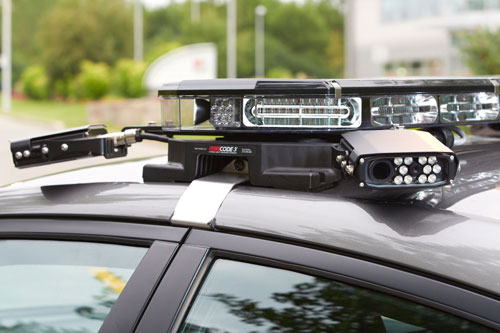 And now the IRS wants access to LPR technology — license plate readers.
And now the IRS wants access to LPR technology — license plate readers.
From Bloomberg.com:
IRS Among Agencies Using License Plate-Tracking Vendor
by Kathleen Miller
The Internal Revenue Service and other U.S. agencies awarded about $415,000 in contracts to a license plate-tracking company before Homeland Security leaders dropped a plan for similar work amid privacy complaints.
Federal offices such as the Forest Service and the U.S. Air Force’s Air Combat Command chose Livermore, California-based Vigilant Solutions to provide access to license plate databases or tools used to collect plate information, according to government procurement records compiled by Bloomberg.
Vigilant, a closely held company, has received such work since 2009. In February, Jeh Johnson, secretary of the Department of Homeland Security, ordered the cancelation of an immigration agency plan to buy access to national license plate data. While the technology can help solve crimes, the American Civil Liberties Union and other groups have said the mass collection of data infringes the privacy of innocent people.
“Especially with the IRS, I don’t know why these agencies are getting access to this kind of information,” said Jennifer Lynch, a senior staff attorney with the Electronic Frontier Foundation, a San Francisco-based privacy-rights group. “These systems treat every single person in an area as if they’re under investigation for a crime — that is not the way our criminal justice system was set up or the way things work in a democratic society.”
WHY, I ask, would the IRS require access to LPR information? Why would the USAF Air Combat Command? For what purpose, to what end?
See this story, also.
Because, as I am about to reveal, LPR technology is everywhere and becoming a standard in law enforcement — my agency included.
Those unfamiliar with LPR technology should realize that these systems are already in place with many local and state law enforcement agencies nationwide. Readers, attached to the roofs of LE vehicles (see above), collect license plate information from motor vehicles parked in lots and elsewhere.
Motorola, an LPR manufacturer, writes:
Enhance your officers’ safety and productivity while maximizing your department’s revenue. Automatic License Plate Recognition (ALPR) delivers the ability to read vehicle license plates and check them against an installed database for rapid identity verification. The license plate recognition system has been used to locate stolen or wanted vehicles and identify parking-ticket scofflaws.
This rapidly deployable, scalable solution uses rugged infrared cameras that connect to leading-edge optical character recognition (OCR) technology software, allowing you to conduct surveillance under varied lighting and weather conditions. Captured information is immediately processed, and you are alerted only when a “hit” occurs.
Back Office System Server (BOSS) Software
- Database formatting including ability to customize PAGIS screens and alarms based on system “hits”
- Import of national and regional databases:
- Ability to map all locations related to a single license plate to track movements
- Ability to cross-reference perpetrator ID number (driver’s license, social security, etc.) with license plate database
Law enforcement, therefore, has the potential to become another smaller but still intrusive NSA. The “take” from LPR technology is sent to various LE local points and can readily be kept on local servers. Depending upon various orders and policies, this information is dumped or stored. I would tend to place my money on the latter.
And here comes the If/Then equation: if the information is stored and retrievable, then it can be sifted and filtered for times, dates, locations — tracking purposes. Note the information above. These systems can be melded and made compatible with other systems for informational sharing purposes.
That said, should not what I call the Logical Extension be implemented now? That is, various and sundry federal LE systems demanding to tap into virtually unlimited information gathered by local and state law enforcement entities? To be further kept on larger federal servers and systems?
Big Brother anyone? Again?
 When and where does it end? And why the resounding silence on behalf of most of the media and the populace?
When and where does it end? And why the resounding silence on behalf of most of the media and the populace?
Might I suggest to the NSA and to the rest of the federal government that seems to have no problem intruding into every nook and cranny of my life and the lives of other Americans: do what I had to do when I was a Detective and wanted to advance my cases.



